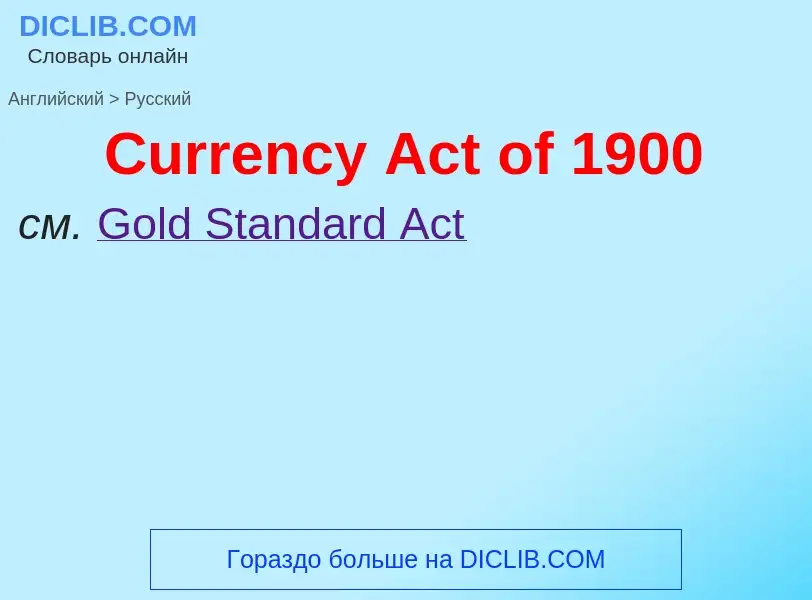Vertaling en analyse van woorden door kunstmatige intelligentie ChatGPT
Op deze pagina kunt u een gedetailleerde analyse krijgen van een woord of zin, geproduceerd met behulp van de beste kunstmatige intelligentietechnologie tot nu toe:
- hoe het woord wordt gebruikt
- gebruiksfrequentie
- het wordt vaker gebruikt in mondelinge of schriftelijke toespraken
- opties voor woordvertaling
- Gebruiksvoorbeelden (meerdere zinnen met vertaling)
- etymologie
Currency Act of 1900 - vertaling naar Engels
закон о золотом стандарте (1900 г.)
прилагательное
общая лексика
вводящий, постановляющий
Definitie
.
Wikipedia
, by John Trumbull.jpg?width=120)
The Currency Act or Paper Bills of Credit Act is one of several Acts of the Parliament of Great Britain that regulated paper money issued by the colonies of British America. The Acts sought to protect British merchants and creditors from being paid in depreciated colonial currency. The policy created tension between the colonies and Great Britain and was cited as a grievance by colonists early in the American Revolution. However, the consensus view among modern economic historians and economists is that the debts by colonists to British merchants were not a major cause of the Revolution. In 1995, a random survey of 178 members of the Economic History Association found that 92% of economists and 74% of historians disagreed with the statement, "The debts owed by colonists to British merchants and other private citizens constituted one of the most powerful causes leading to the Revolution."

, by John Trumbull.jpg?width=200)
